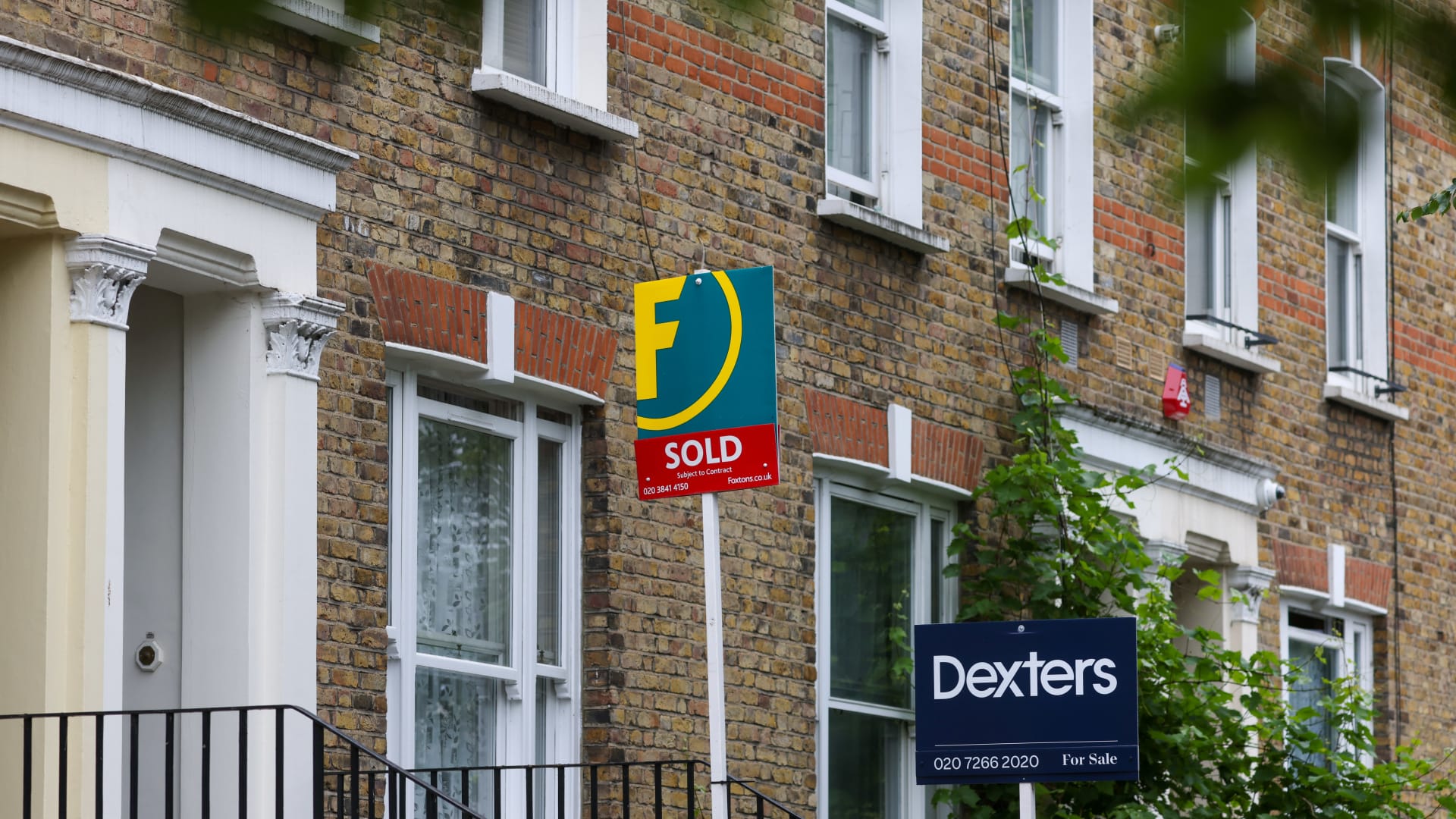
This is CNBC's live blog covering European markets.
European markets closed higher Friday after finishing their best month since January amid a global rally in stocks and bonds.
The Stoxx 600 index closed up 1%, with mining stocks leading gains with a 4.2% rise after China's manufacturing sector recorded an unexpected expansion.
The Stoxx gained 6.45% in November, according to LSEG data, as equities pivoted from three straight monthly losses.
Major bourses ended on an upbeat note after flash data estimated euro zone inflation has now fallen to 2.4%, down from 2.9% in October and significantly lower than forecast.
European Central Bank officials have repeatedly pushed back against investor expectations of rate cuts next year, insisting it is too soon to discuss when they might come.
However, the fresh figures led market watchers to suggest the ECB may need to revise its inflation forecasts and fueled expectations for the first cut to come as soon as April.
Money Report
Cooling U.S. inflation and signs of continued economic resilience have also sent U.S. stocks and bonds on a tear. Futures now price in a significant chance of five cuts by the Federal Reserve next year.
Oil prices were lower Friday after the Organization of the Petroleum Exporting Countries coalition and its allies, known as OPEC+, announced there would be no formal extension of production cuts. However, Saudi Arabia extended its 1 million barrel per day voluntary cut into the first quarter, and other members announced their own reductions.
U.S. stocks open slightly lower
Here's how the major indexes opened on Friday:
- The S&P 500 lost about 0.2%.
- The Dow Jones Industrials Average shed 11 points, or less than 0.1%.
- The Nasdaq Composite dropped 0.3%.
— Pia Singh
Euro zone manufacturing activity continues decline
Euro zone manufacturing continued to weaken in November, though some bright spots emerged, according to the latest purchasing managers' index figures from HCOB and S&P Global.
The overall PMI reading was 44.2 last month, putting the sector in contraction territory for the seventeenth consecutive month. The rate of decline was less severe across new orders, stocks and purchasing activity.
Austria was the worst performer in November, followed by Germany and France.
The reading comes as investors assess whether the European Central Bank may be pushed into rate cuts sooner than previously indicated, given the decline in key inflation gauges and the 0.1% economic contraction in the third quarter.
— Jenni Reid
UK house prices rise unexpectedly in November

U.K. house prices rose 0.2% in November, according to data from lender Nationwide that was published Friday. Economists polled by Reuters had forecast a 0.4% decline.
House prices were still 2% lower than a year ago.
"There has been a significant change in market expectations for the future path of [the Bank of England's] Bank Rate in recent months which, if sustained, could provide much needed support for housing market activity," said Nationwide's chief economist, Robert Gardner.
In mid-August, investors expected a peak rate of 6% followed by a decline to around 4% over the next five years, but markets now suggest rates have already peaked at 5.25% and will be lowered to around 3.5% in the coming years, he said. That has sent down longer-term swap rates that underpin mortgage pricing.
"If sustained, this will help to ease the affordability pressures that have been stifling housing market activity in recent quarters, where the number of mortgage approvals for house purchases has been running at c.30% below pre-pandemic levels," Gardner said.
— Jenni Reid
European stocks head for higher open
European stocks are heading for a strong start Friday, extending November's positive momentum into the new month.
The U.K.'s FTSE 100 looks set to open 42 points higher at 7,487, according to IG data. Germany's DAX is seen opening 60 points higher at 16,293, with France's CAC 40 up by 25 points at 7,338 and Italy's MIB up 125 points at 29,891.
— Jenni Reid
China's manufacturing activity unexpectedly expands in November: Caixin survey

China's manufacturing sector unexpectedly expanded in November, according to a survey by Caixin.
The Caixin purchasing managers' index climbed to 50.7 last month from 49.5 in October, as a rise in new orders helped lift factory production.
The November PMI recorded the fastest expansion in three months and beat Reuters poll estimates of 49.8.
"Though modest, the rate of new order growth was the best seen since June, with firms often noting that firmer market conditions had helped to lift sales. However, new work from overseas continued to fall slightly, underscoring a relatively challenging external demand environment," the survey said.
A reading above the 50-point mark signifies growth.
— Shreyashi Sanyal
Europe stocks open higher
Stocks had a bright start to the new month, with the Stoxx 600 index 0.5% higher at 9 a.m. U.K. time and all sectors trading in the green.
London's FTSE 100 index rose 0.8%, while France's CAC 40 and Germany's DAX were up by 0.45% and 0.7%, respectively.
— Jenni Reid
CNBC Pro: Goldman Sachs loves this sub-sector in China — and names 3 stocks to buy
One corner of the economy in China is one of Goldman's top preferred sub-sectors — and six key themes will take center stage in 2024.
The bank named three Chinese stocks it says are "well positioned" for those themes.
One of the stocks is on Goldman's conviction list, which comprises buy-rated names it expects to outperform.
CNBC Pro subscribers can read more here.
— Weizhen Tan
Market pricing points to five rate cuts following inflation data
As markets got another signal Thursday that inflation is ebbing, they solidified bets that the Fed is done hiking rates and will be cutting substantially in 2024.
Futures pricing suggested only a minimal chance of rate increases at the Federal Open Market Committee's December and January meetings, according to CME Group data. Moreover, futures pointed to a better-than-even chance that the central bank will cut benchmark rates five times next year, the equivalent of 1.25 percentage points.
The moves followed Thursday morning economic readings showing that core PCE inflation fell to 3.5% and continuing jobless claims rose to a two-year high.
—Jeff Cox






